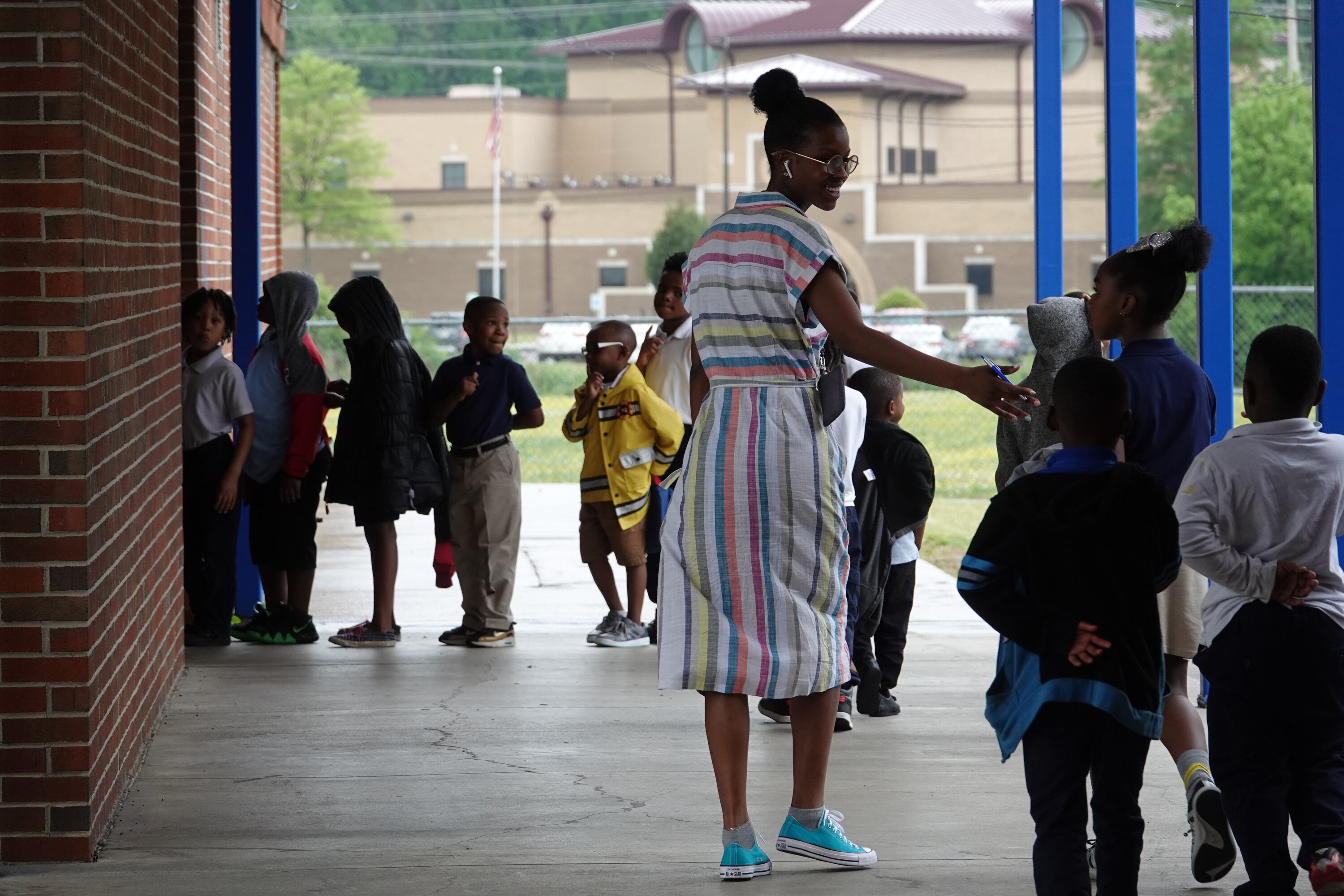The head of Tennessee’s largest school district wants the school board to vote next week on a labor agreement that has been stuck in negotiations for three years. Interim Superintendent Toni Williams’ proposal comes after the district rejected one teachers union’s attempt to restart the bargaining process from scratch.
Educators in Memphis-Shelby County Schools have been without a memorandum of understanding with the district since 2018, when the last agreement expired. The district’s two teachers unions last went to the bargaining table in 2019, but have not agreed on a new contract with the district to date.
That could change after the United Education Association of Shelby County, the smaller of the two unions, tried to kickstart a new round of negotiations, arguing that an entirely new contract is needed to address rising health care costs, stagnant salaries, and large class sizes.
“I’m a veteran teacher with over 25 years of exemplary experience, but right now, I am marking the days off the calendar for when I can retire because I am mentally, physically, and emotionally exhausted,” said Fredericka Johnson, a UEA member, at a board meeting Tuesday.
Johnson signed a UEA petition that would force the district back to the bargaining table under a 2011 Tennessee law that requires a district to launch the bargaining process if unions can collect signatures from 15% of teachers.
On Tuesday, the district announced it was unable to verify the number of signatures on the petition because of discrepancies that included duplicate and ineligible signatures. With an insufficient number of signatures and the window for submitting a petition closed, MSCS says it cannot start the teachers union bargaining process.
Kenneth Walker II, the district’s general counsel and chief legal officer, said Tuesday that an MOU from the 2019 bargaining session was drawn up, but disagreements over compensation and fringe benefits prevented it from being signed.
That contract would allow teachers to select the members who serve on district professional committees, increase the district’s contribution to medical insurance premiums from 66% to 70%, and include a pledge to increase compensation during upcoming fiscal planning for the 2023 budget.
Separate from the bargaining process, Williams also proposed forming a teacher advisory council focused on improving teacher compensation, one of her top priorities as interim superintendent.
In a presentation to the board, Williams said the council will serve as a “platform to elevate the voices of teachers throughout the district on compensation and other issues,” and would give teachers “direct access” to her office and other district leaders. The district has already opened up nominations for teachers to participate.
Danette Stokes, president of the United Education Association, supports the idea of creating a teacher advisory council, but said it’s no replacement for the bargaining process.
“Teacher voices are important. We should be at the table every time decisions are being made about us,” Stokes said. “But a teacher advisory council cannot engage in collaborative conferencing with the district.”
The district’s unions disagree over whether the district should sign the pending contract or start afresh.
Several members of the Memphis-Shelby County Education Association, the district’s larger teachers union led by recently elected board member Keith Williams, urged the board to sign the existing MOU.
Charlotte Fields, an MSCS educator for over 26 years and a member of MSCEA, said the MOU “represents what is best for all educators.”
But other public commenters on behalf of UEA disagreed. Many shared concerns about teachers’ existing working conditions and pay and advocated for restarting the bargaining process laid out in Tennessee law.
When MSCS hired Johnson 19 years ago, she was ecstatic. She’s no longer happy with her job, the veteran teacher told the board Tuesday.
Over the last nearly two decades, Johnson said the cost of district-provided health care plans has increased, while her salary has stayed virtually stagnant. Her planning time is “constantly interrupted” because she’s asked to cover other classrooms because the district does not have enough substitute teachers. Class sizes increased despite administrators’ promises of reprieve. And Johnson says she has occasionally had to lay a bag of ice over the thermostat in her room for the heat to turn on.
“District leaders are constantly stating that teachers are doing the ‘hard and heart work’ for our students,” Johnson said. “Now is the time for you to show you’re doing the same for us.”
Stokes said her union is not ready to give up on restarting negotiations. Stokes said Wednesday that the union submitted the required amount of signatures by law, and she’s consulting with union lawyers to determine her next steps.
Lisa Jorgensen, another UEA teacher, called on the board to act quickly to begin a new round of negotiations.
“Educators are drowning with work overload,” Jorgensen said. “Our working conditions are unsustainable and becoming more so.”
Samantha West is a reporter for Chalkbeat Tennessee, where she covers K-12 education in Memphis. Connect with Samantha at swest@chalkbeat.org.






